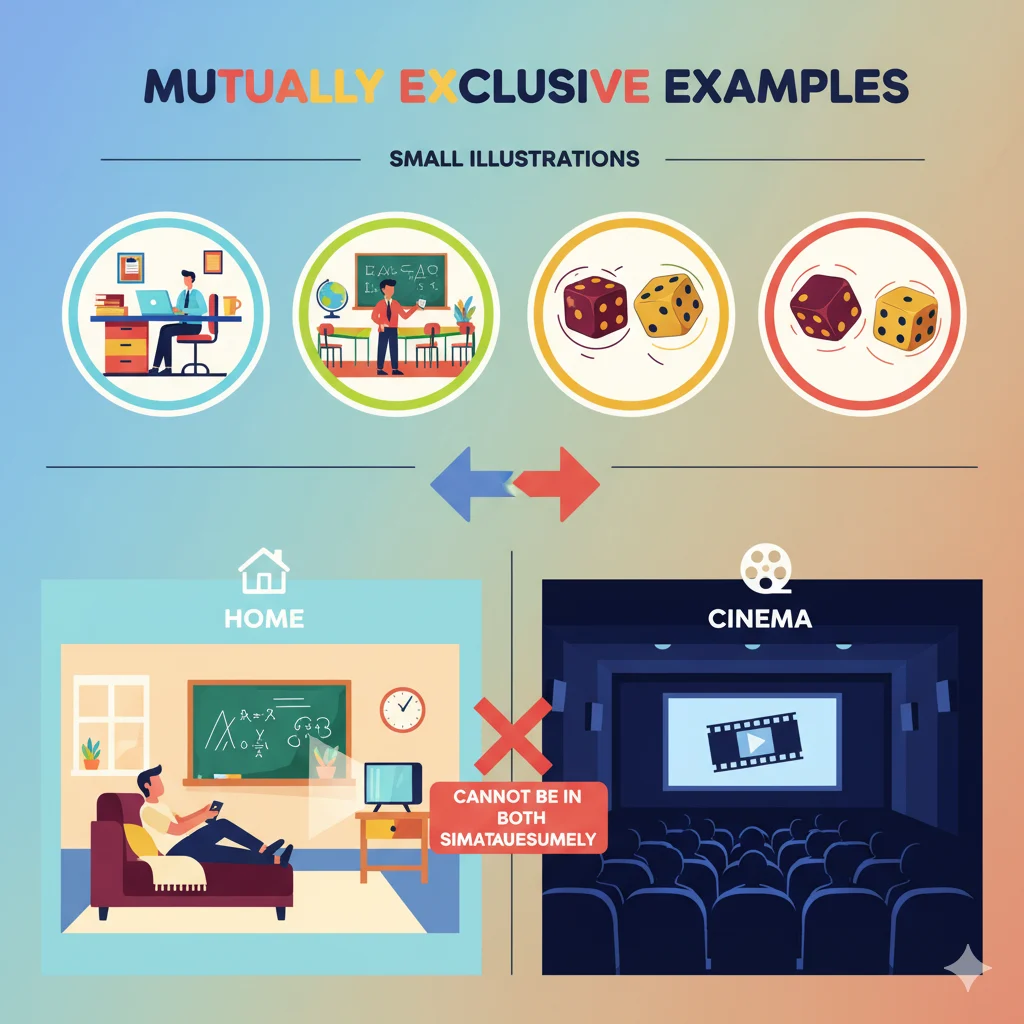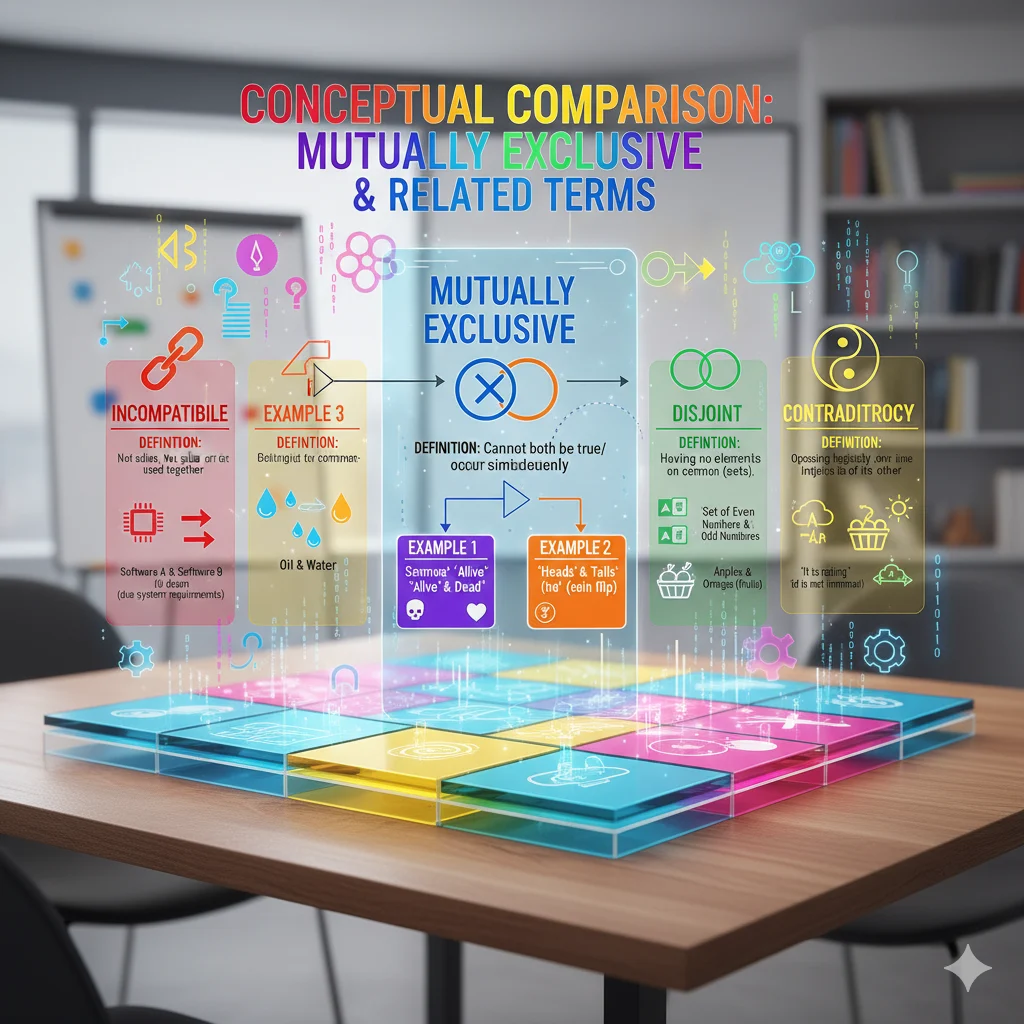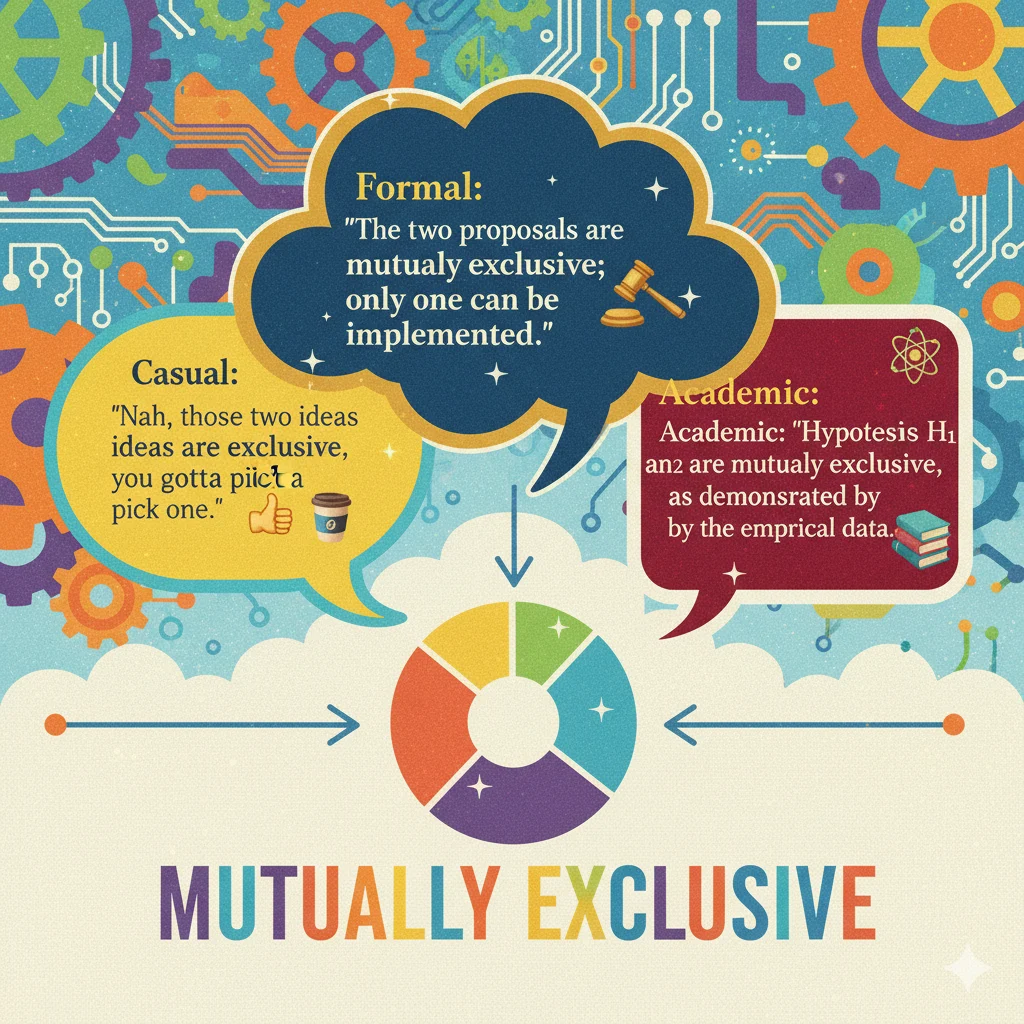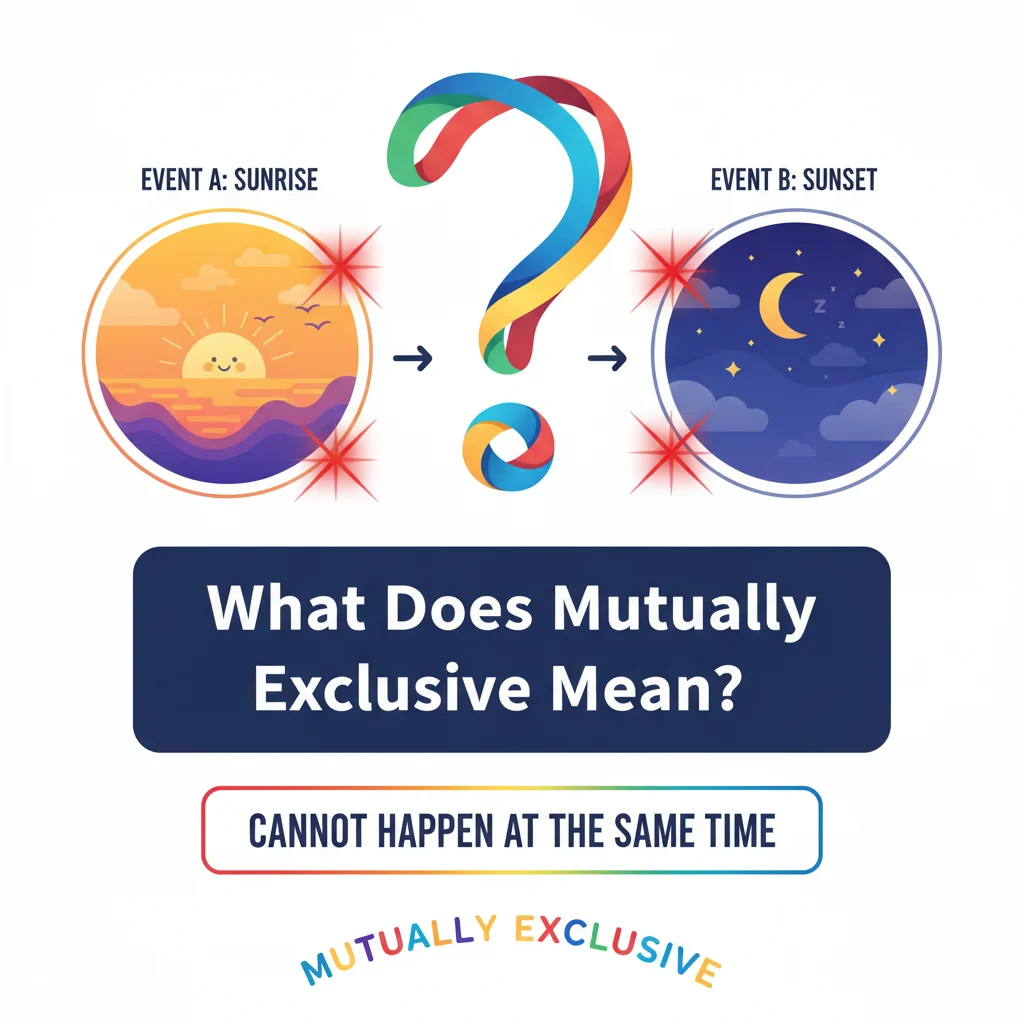You might have heard someone say, “These two ideas are mutually exclusive,” and wondered, “What does Mutually Exclusive Mean? You might have heard someone say, “These two ideas are mutually exclusive,” and then wondered, “What does that even mean?”
In fact, people use this phrase in everyday conversations, textbooks, work meetings, and online discussions. Therefore, understanding it helps you express ideas clearly, avoid confusion, and grasp logic in debates or statistics.
Quick Answer: Mutually exclusive means two events, options, or ideas cannot happen or exist at the same time.
When one occurs, the other cannot. People often use it in logic, statistics, probability, and daily language to highlight incompatibility.
🧠 Definition & Meaning

Mutually exclusive is a formal term used in logic, math, probability, and everyday speech. It describes situations where two events or ideas cannot occur simultaneously.
For example:
- “Being pregnant and being male are mutually exclusive.”
- “Flipping a coin results in either heads or tails — these outcomes are mutually exclusive.”
In short: Mutually Exclusive = Cannot happen at the same time = Incompatible events or options.
📚 Origin & Usage

The phrase comes from formal logic and probability theory, where clear distinctions between events are necessary. It is used in:
- Statistics & Probability: To explain events that cannot occur together.
- Work & Decision Making: To clarify incompatible options or choices.
- Everyday Language: To express that two things cannot happen at the same time.
- Logic & Philosophy: To highlight contradictory statements.
💬 Examples of Mutually Exclusive in Real Life

- Work Scenario:
- “Taking two full-time jobs in different cities is mutually exclusive.”
- Education:
- “You cannot be enrolled in two courses that meet at the same time — they are exclusive.”
- Probability / Math:
- “Rolling a die to get a 2 or a 5 — both cannot happen at the same time.”
- Everyday Life:
- “Being at home and being at the cinema at the same time are mutually exclusive events.”
⚠️ Common Misconceptions

❗ Misconception 1: Mutually exclusive means they are opposites.
- Not necessarily. They simply cannot happen at the same time, even if one is not the exact opposite of the other.
❗ Misconception 2: Only used in math or statistics.
- False. It’s used in logic, work discussions, and casual speech as well.
❗ Misconception 3: They can overlap.
- By definition, mutually exclusive events cannot overlap. If they do, they are not mutually exclusive.
🔄 Similar Terms & Alternatives

| Term / Phrase | Meaning | When to Use |
|---|---|---|
| Incompatible | Cannot coexist | Formal and casual discussions |
| Contradictory | Opposing ideas | Logic or philosophy |
| Disjoint | Non-overlapping events | Statistics / probability |
| Conflicting | Clash in choices or ideas | Everyday & work contexts |
| Separate / Distinct | Clearly different | Informal or formal explanations |
💁♀️ How to Use Mutually Exclusive in Sentences

Formal Usage
- “The two policies are mutually exclusive and cannot be implemented together.”
Casual Usage
- “Playing video games and studying all night are kind of mutually exclusive.”
Academic / Statistical Usage
- “In probability, getting a red card or a black card from a standard deck is mutually exclusive.”
❓ FAQs
Q1: Is mutually exclusive the same as opposite?
Not always. Opposites are contradictory, but mutually exclusive just means cannot happen at the same time.
Q2: Can two mutually exclusive events happen together?
No. By definition, they cannot occur simultaneously.
Q3: Is it only for math and logic?
No. It’s widely used in work, everyday conversations, and decision-making.
Q4: Can ideas be mutually exclusive?
Yes. Ideas, options, and actions can all be mutually exclusive if they cannot coexist.
Q5: What’s a simple way to remember it?
Think: “One happens, the other cannot.”
🌺 Conclusion
Understanding mutually exclusive helps you communicate clearly and logically in work, academics, and everyday life. Whether you’re discussing probability, making decisions, or explaining incompatible ideas, knowing this phrase ensures clarity. Remember: mutually exclusive events or options cannot happen at the same time, and recognizing this can make your reasoning sharper and your communication more precise.

Michael Smith is the creator of PikupLab.com, known for crafting engaging, SEO-smart content that connects with modern audiences.
He specializes in turning niche topics into high-ranking, reader-focused articles.

